Best Newari Restaurants in Kathmandu
9841434550
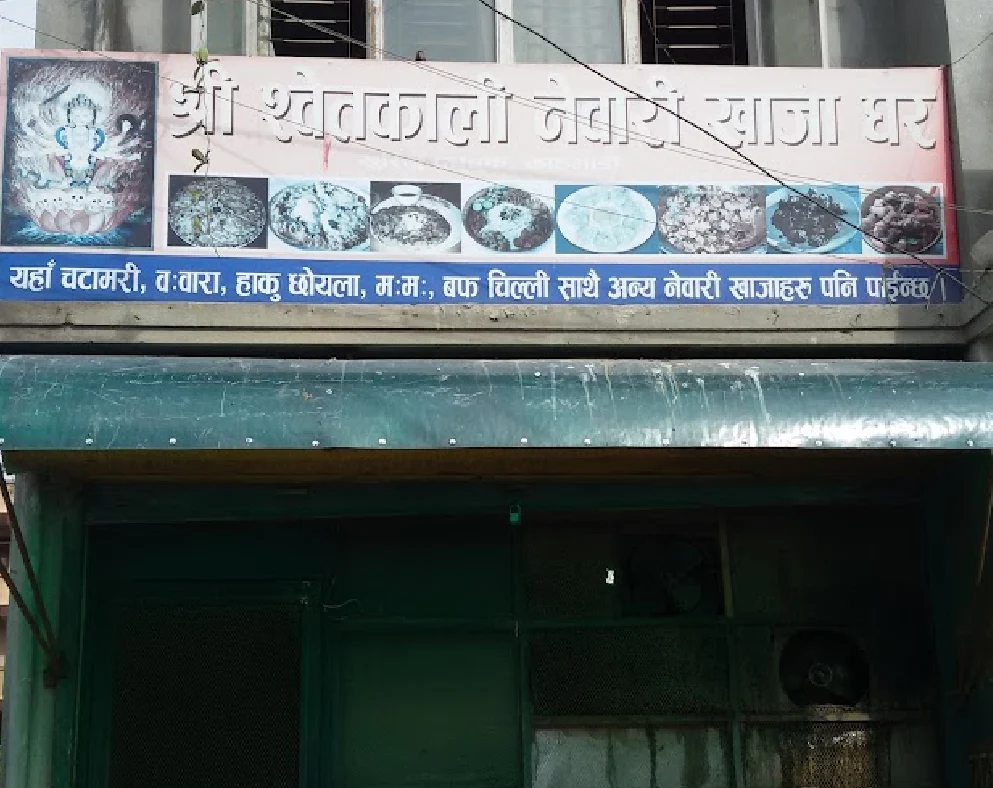
P894+98M, Yekikaran Sadak, Kathmandu
Shree Swetkali Newari KhajaGhar is a traditional Newari restaurant nestled in the heart of Kathmandu, offering an authentic culinary journey through Nepal’s rich gastronomic heritage. Located in the Sorakhutta area, this unassuming eatery has carved a niche for itself by serving a wide array of traditional Newari dishes that capture the essence of local cuisine. The restaurant prides itself on its no-frills atmosphere, focusing instead on delivering genuine, flavorful Newari delicacies that showcase the depth and complexity of Nepalese cooking.
From classic staples to lesser-known specialties, the menu is a treasure trove of Newari culinary traditions. Diners can expect to find an extensive selection of dishes including the famous “Khaja Set”, featuring an assortment of delicacies like Yomari (sweet steamed dumplings), Bara (fried lentil cakes), Aloo Tama (potato and bamboo shoot curry), choila, chatamari, dyakula, and sapumicha. Each dish is prepared with authentic ingredients and time-honored cooking techniques, ensuring an immersive and genuine taste experience.
9841263409
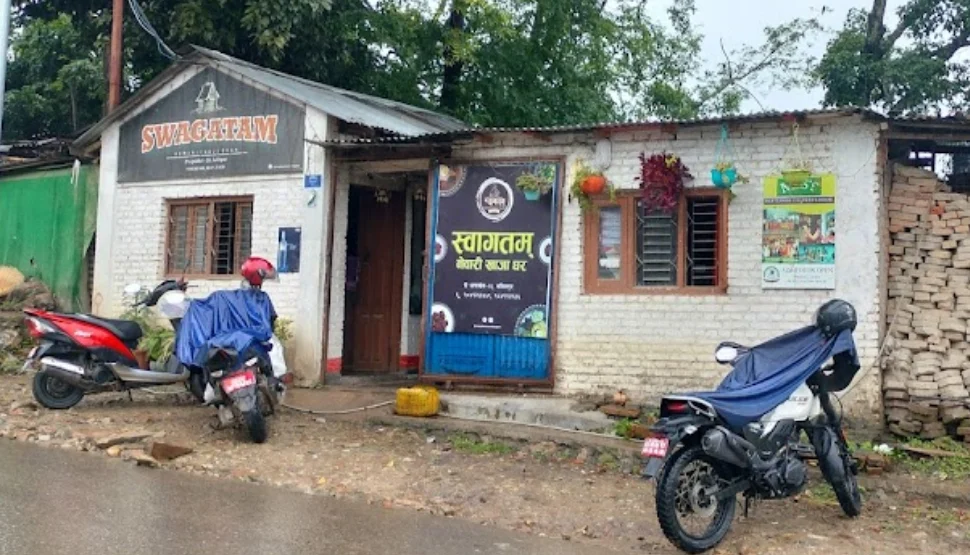
F102, Dhapakhel, Lalitpur 44700
Swagatam Newari KhajaGhar is an authentic Newari cuisine restaurant nestled in the heart of Dhapakhel, Lalitpur. This traditional establishment has earned a strong reputation for its distinctive fish choila, a unique twist on the classic Newari dish that sets it apart from other eateries in the area. The restaurant caters to both casual diners and those seeking an authentic taste of Newari culture through its food. Their menu features a comprehensive selection of traditional Newari dishes, with prices remaining reasonable and accessible. The establishment maintains a casual dining atmosphere while staying true to its cultural roots, making it a popular choice for both locals and visitors looking to experience genuine Newari flavors. The restaurant’s commitment to maintaining authentic tastes while offering innovative dishes like fish choila demonstrates their dedication to both tradition and culinary creativity.
9861943113
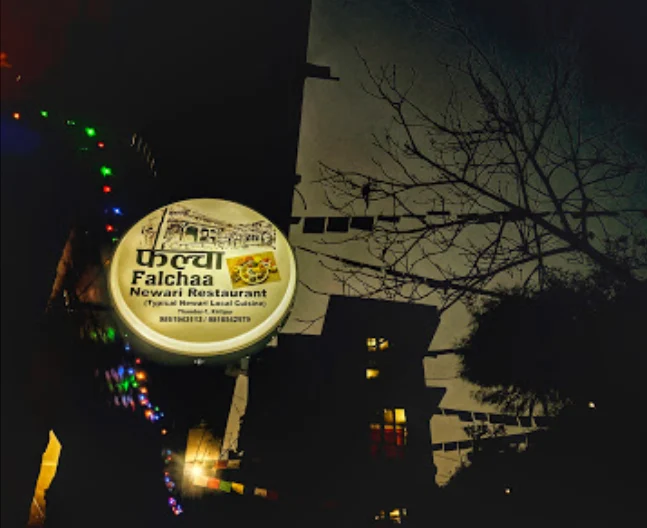
Kirtipur
Falcha Newa Restro is a cherished traditional restaurant nestled in the heart of Kirtipur, offering an authentic Newari dining experience. This establishment has carved out a reputation for serving genuine Newari cuisine with a focus on maintaining traditional flavors and cooking methods. The restaurant’s ambiance perfectly balances casual and cozy atmospheres, making it an ideal destination for both intimate dining and group gatherings. Known for its comprehensive menu featuring classic Newari dishes like Chatamari, Bara, and Choila, Falcha Newa Restro has become a go-to destination for both locals and visitors seeking authentic Newari flavors. Their beverage selection, including traditional drinks like Chyang, complements the dining experience, while their commitment to maintaining quality and taste has earned them a loyal customer base.
9841856877
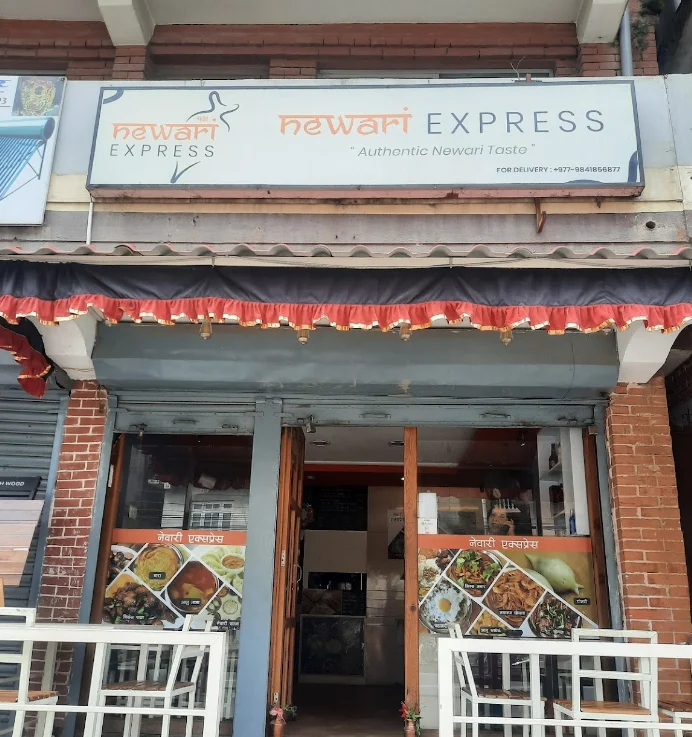
952+93W, Budhanilkantha 44600
Newari Express is a traditional restaurant nestled in the heart of Budhanilkantha, offering an authentic culinary journey into Newari cuisine. This charming eatery has quickly become a local favorite, known for its delicious and homemade-style Newari dishes. The restaurant prides itself on serving traditional specialties like Yomari, Bara, Chatamari, and other local delicacies that capture the rich gastronomic heritage of the Newari community. With a warm and welcoming atmosphere, Newari Express provides diners with an opportunity to experience the genuine flavors and hospitality of Nepali traditional cooking.
14152040
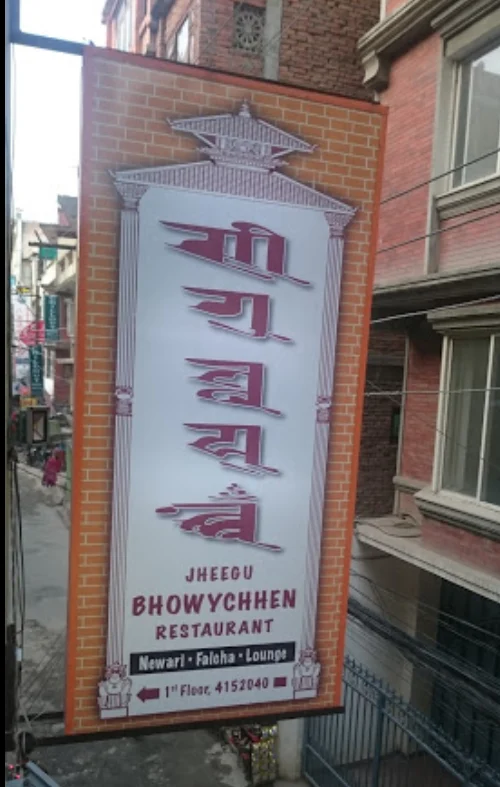
P866+9V6, Amrit Marg, Kathmandu 44600
Jheegu Bhwoy Chhen is a traditional Newari restaurant nestled in the heart of Kathmandu, offering an authentic culinary experience that captures the essence of local cuisine. Located on Amrit Marg, this restaurant is a hidden gem for food enthusiasts seeking genuine Newari flavors. With its cozy and casual atmosphere, the restaurant provides a welcoming environment for both locals and tourists alike. The establishment is renowned for its traditional dishes, small plates, and a unique dining experience that transports guests into the rich culinary heritage of the Newari community.
9841902523
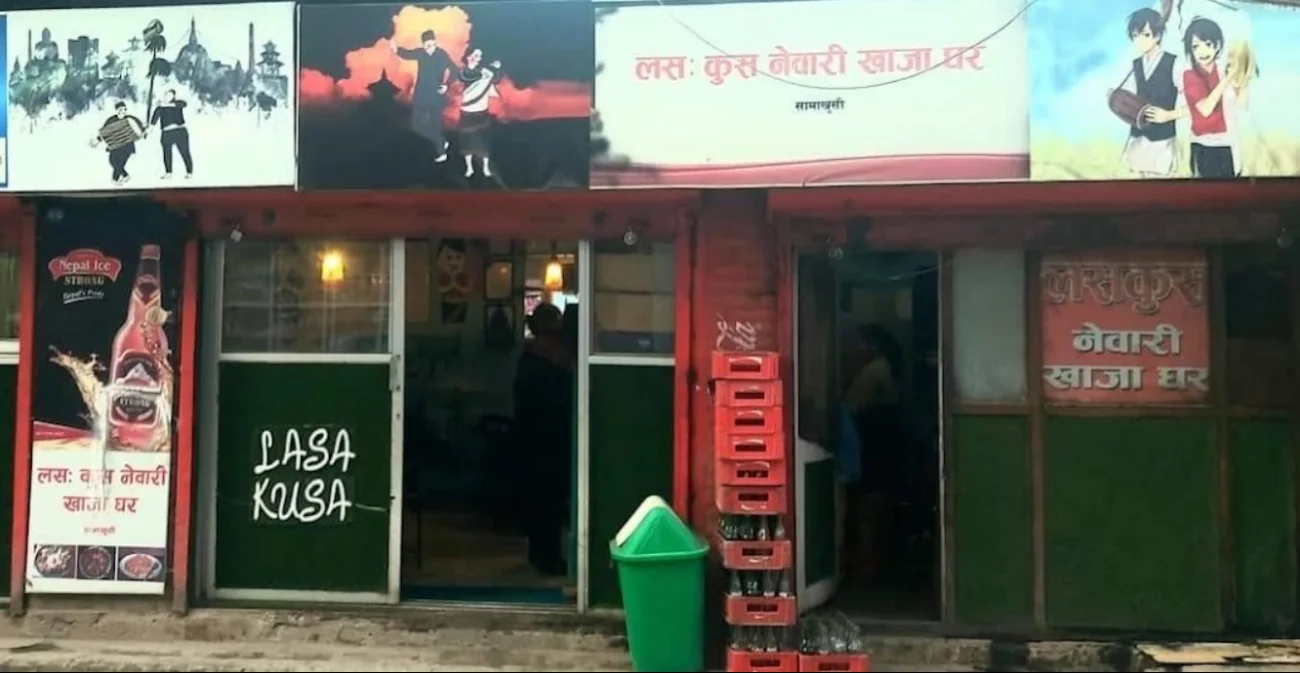
Samakhushi - Ranibari Rd, Kathmandu
Lasa:kusa Newari KhajaGhar is a beloved traditional restaurant nestled in the bustling Samakhusi area of Kathmandu, offering an authentic Newari culinary experience. The restaurant has earned a reputation for serving genuine Newari cuisine with a focus on traditional flavors and preparation methods. Their menu features a variety of classic Newari dishes, with their choila being particularly popular among patrons. The establishment maintains a casual, welcoming atmosphere that makes it suitable for both family dining and group gatherings. What sets this restaurant apart is their commitment to maintaining the authentic taste of Newari cuisine while providing a comfortable dining environment that feels like home. The restaurant caters to both locals and visitors looking to experience genuine Newari flavors in a traditional setting.
9810169601
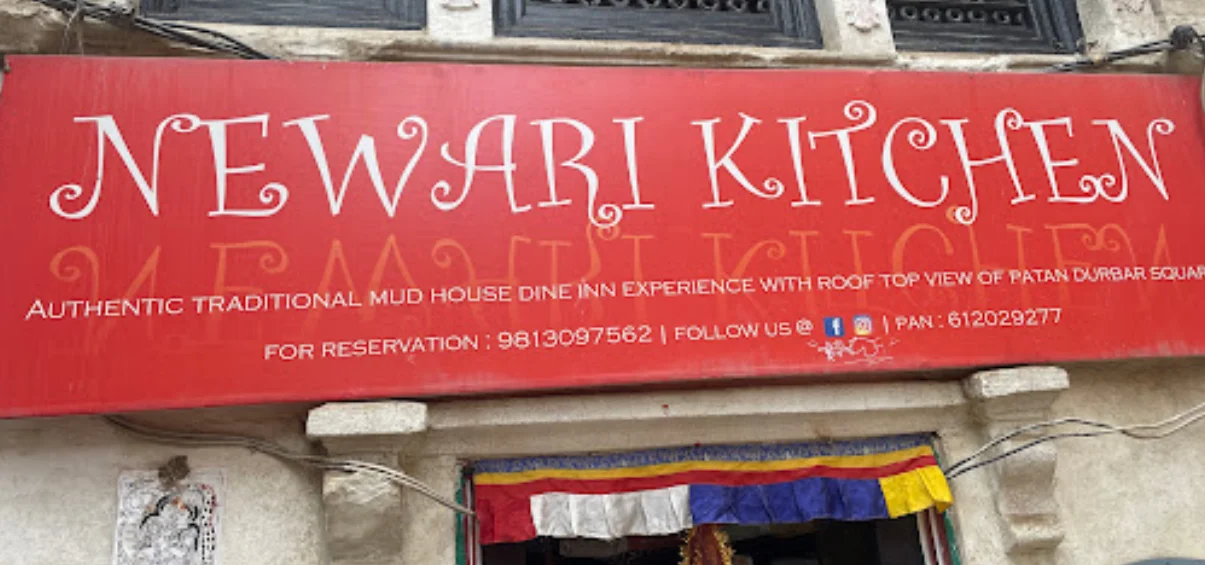
126 Jaycees Marg, Kathmandu 44600
Newari Kitchen is a traditional restaurant located in the heart of Kathmandu, specializing in authentic Newari cuisine. Situated in the Tripureshwor neighborhood, this restaurant offers a genuine taste of Nepal’s rich culinary heritage. The establishment is known for its traditional food preparation and serves a variety of Newari delicacies that showcase the region’s unique flavors and cooking techniques. While primarily operating as a delivery and takeaway service, the restaurant has garnered appreciation for its commitment to preserving and presenting traditional Newari culinary traditions.
9801464945
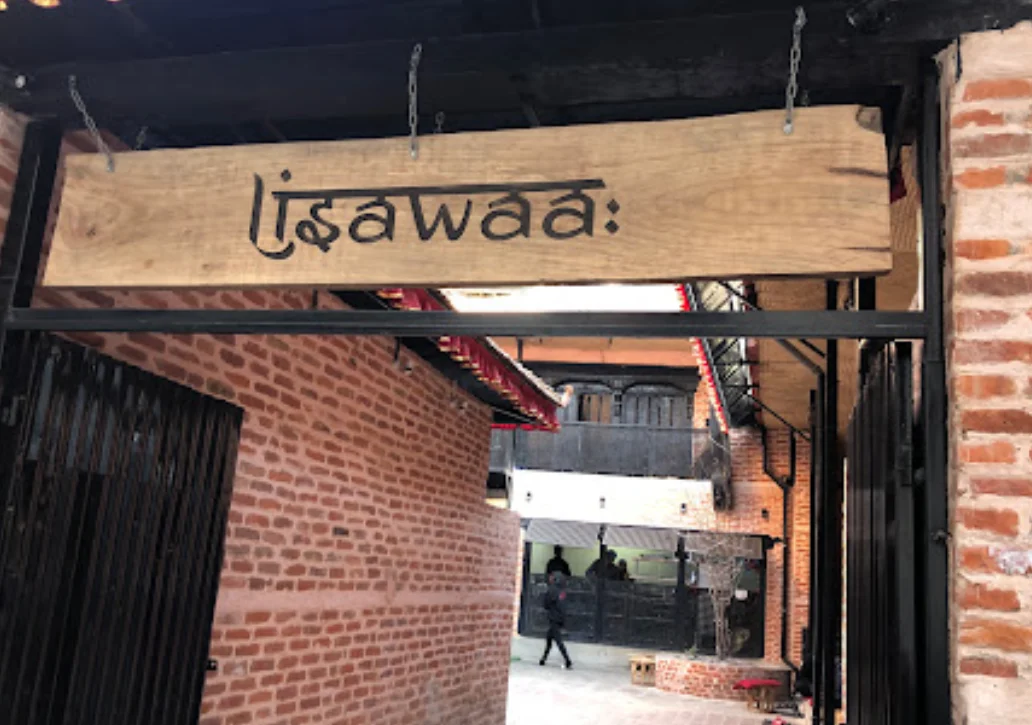
M8F9+XG2, Lalitpur 44700
Lisawaa Newari Restaurant stands as a premier destination in Jawalakhel, Lalitpur, offering authentic Newari cuisine in a traditional setting. Located in the heart of Patan, just minutes away from the historic Patan Durbar Square, this establishment has earned recognition for its commitment to preserving authentic Newari flavors while providing a contemporary dining experience. The restaurant features traditional floor seating arrangements that enhance the cultural dining experience, complemented by live music performances that create an engaging atmosphere. Their menu showcases a comprehensive selection of Newari delicacies, with particular acclaim for their buff choila, chatamari, and traditional beverages like chang. The venue’s design embraces both indoor and outdoor seating options, making it suitable for various dining preferences and occasions.
9841291596
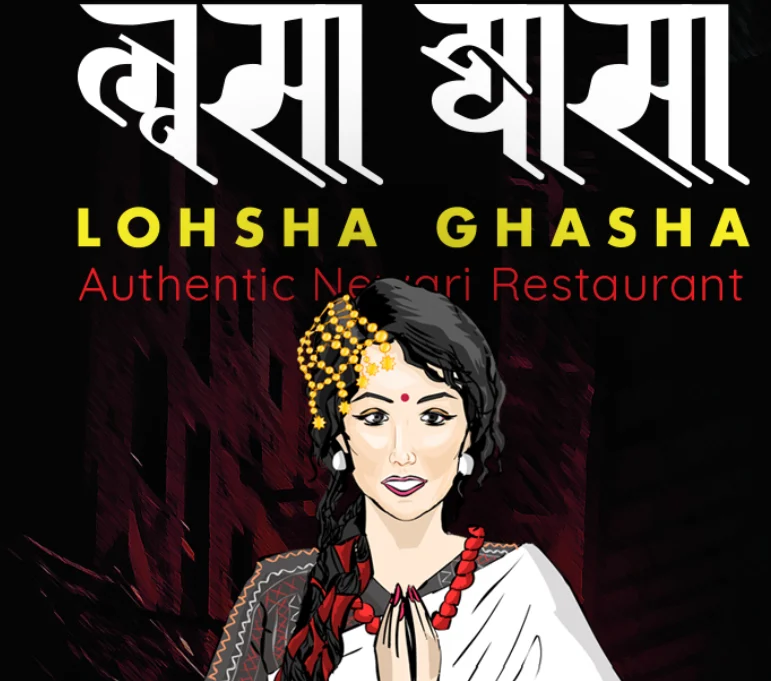
P866+6WJ, Jyatha Marg, Kathmandu
Lohsha Ghasha Restaurant is a well-established traditional Newari restaurant located in the heart of Kathmandu’s Thamel area. The restaurant specializes in authentic Newari cuisine, offering both traditional dishes and modern interpretations. Set in a traditional multi-story building, the restaurant provides an authentic dining experience where guests remove their shoes before being seated, adding to the cultural ambiance. Known for their extensive menu featuring local specialties like Newari Khaja sets, buff momos, bara, and thupka, the restaurant has gained popularity among both locals and tourists. The establishment maintains a cozy, casual atmosphere while serving high-quality traditional fare at reasonable prices. The restaurant’s dedication to preserving authentic Newari flavors while providing a comfortable dining environment has made it a notable destination for those seeking genuine local cuisine.
9803471523
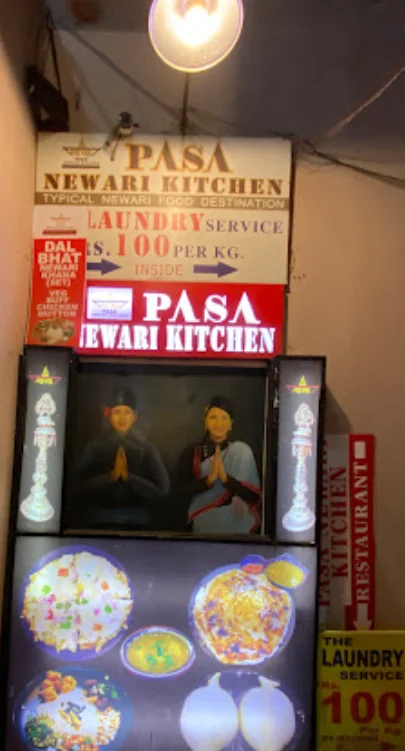
Mandala Street, Kathmandu
Pasa Newari Kitchen is an authentic Newari cuisine restaurant nestled in the heart of Thamel, Kathmandu. This cozy establishment offers a genuine taste of traditional Newari dishes in a warm, welcoming atmosphere. The restaurant is particularly known for its signature dishes including khaja sets, chatamari, and yomari. Located down a quaint alley on Mandala Street, this hidden gem provides a more intimate dining experience away from the tourist crowds. The restaurant combines traditional recipes with a contemporary dining setting, featuring Newari-inspired decor and artwork that creates an authentic cultural ambiance. Their menu showcases both vegetarian and non-vegetarian options, with a special emphasis on buffalo-based dishes prepared in traditional Newari style.
9860068728
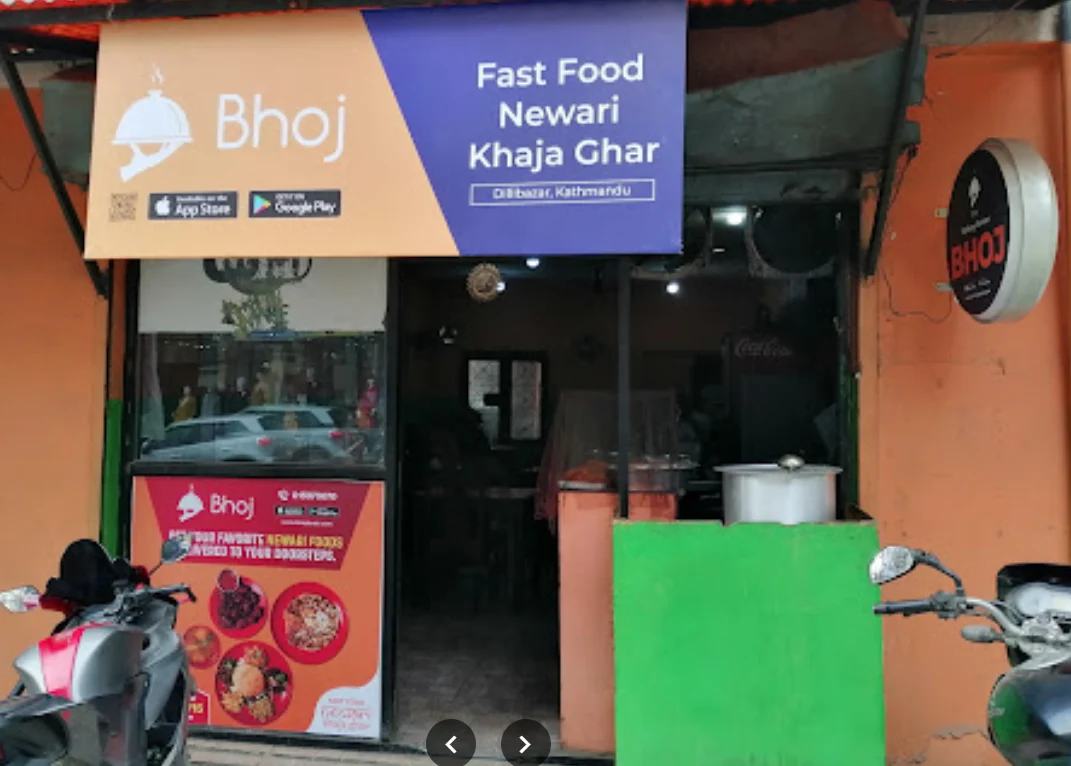
P84F+7X3, Dilli Bazaar, Kathmandu
Fast Food Newari Khaja Ghar is a traditional Nepali restaurant specializing in spicy Newari cuisine located in the heart of Dilli Bazaar, Kathmandu. The restaurant has gained popularity for its signature spicy sekuwa (grilled meat) dishes, particularly their chicken and buff sekuwa, which are marinated in traditional Nepali spices. The establishment combines traditional Newari culinary techniques with a casual dining atmosphere, making it a favorite spot for locals and food enthusiasts. The restaurant maintains affordable pricing while delivering authentic flavors, though their dishes are notably spicy. While the ambiance is modest and casual, the focus is primarily on the food quality and traditional taste.
15380273
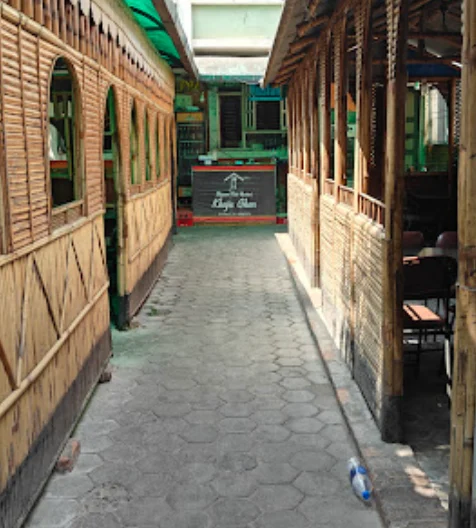
M7QX+6J4, Kuleshwor, Kathmandu
Shyam Dai Newari KhajaGhar is an authentic traditional Newari restaurant nestled in the heart of Kuleshwor, Kathmandu. Known for its exceptional Newari cuisine, the establishment has earned a strong reputation for serving genuine flavors that capture the essence of traditional Newari culinary arts. The restaurant is particularly famous for its diverse range of choila dishes, including their signature buff choila and innovative mushroom choila. What sets this establishment apart is that the owners themselves are involved in the cooking and serving process, ensuring consistent quality and a personalized dining experience. The restaurant offers a casual dining atmosphere ideal for both quick meals and leisurely dining experiences, making it a favorite among locals and food enthusiasts seeking authentic Newari tastes.
9843800768
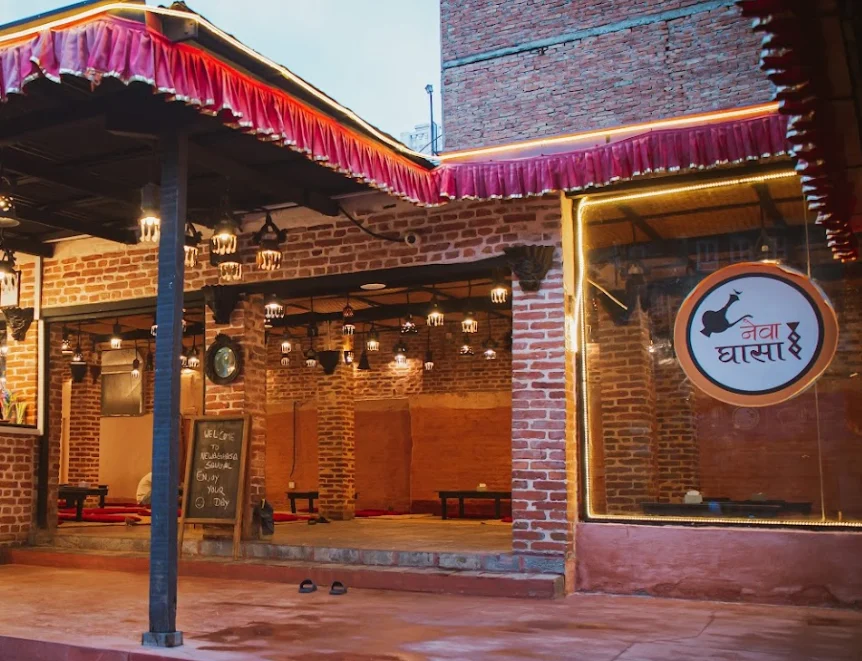
M8CG+FJ2, Lalitpur 44600
Nestled in the heart of Mangal Bazaar, Patan, Newa Ghasa is a traditional restaurant that offers an authentic Newari dining experience. This charming eatery captures the essence of Newari culture through its cuisine, ambiance, and warm hospitality. Located in a historically rich area, the restaurant provides visitors with an opportunity to immerse themselves in the local culinary traditions. The restaurant specializes in traditional Newari dishes, offering a wide range of local delicacies that showcase the rich gastronomic heritage of the Newar community. With its cozy atmosphere and commitment to preserving traditional cooking methods, Newa Ghasa Patan has become a popular destination for both locals and tourists seeking an genuine Newari dining experience.
9841860857
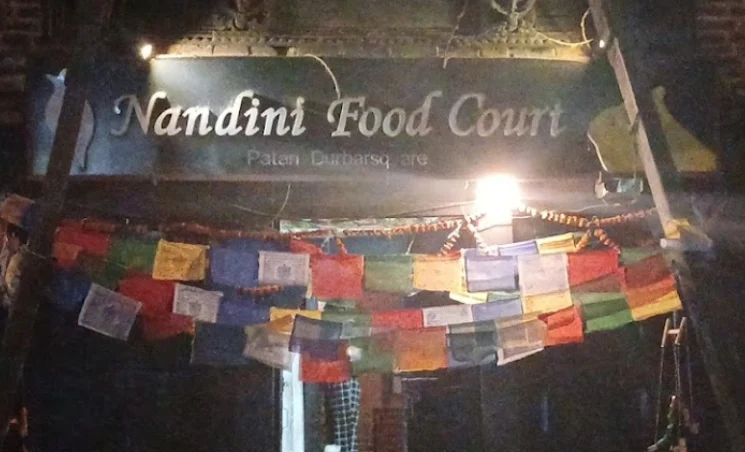
Swotha Rd, Lalitpur
Nestled in the historic Swotha area of Lalitpur, Nandini Newari Food Court is a traditional restaurant that offers an authentic journey into Newari cuisine. Located near the iconic Patan Durbar Square, this small eatery captures the essence of Nepalese culinary heritage. The restaurant provides a glimpse into the rich cultural traditions of the Newari community through its carefully prepared dishes. With a cozy atmosphere and a view of a nearby temple, it offers visitors a genuine local dining experience. Despite its modest size, the restaurant has gained popularity for its traditional Newari delicacies like Yomari, Bara, Choila, and various Newari Khaja sets.
14960223
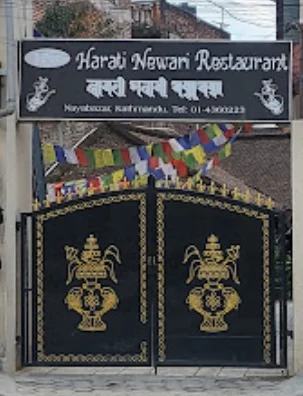
P8C5+7GC, Naya Bazaar Marg, Kathmandu
Harati Newari Restaurant stands as a culinary cornerstone in Kathmandu’s Naya Bazaar area, specializing in authentic Newari cuisine. This establishment has been serving traditional flavors for over two decades, earning a reputation as a go-to destination for both locals and tourists seeking genuine Newari delicacies. The restaurant features a bustling atmosphere with multiple dining areas, making it an ideal venue for both intimate dinners and group gatherings. Known for its swift service and consistent food quality, Harati Newari Restaurant maintains the authentic taste of traditional recipes while catering to modern dining preferences. The restaurant’s location in the heart of Kathmandu makes it easily accessible, though parking can be found both in front for cars and at the back for bikes through a small passage.
14336770
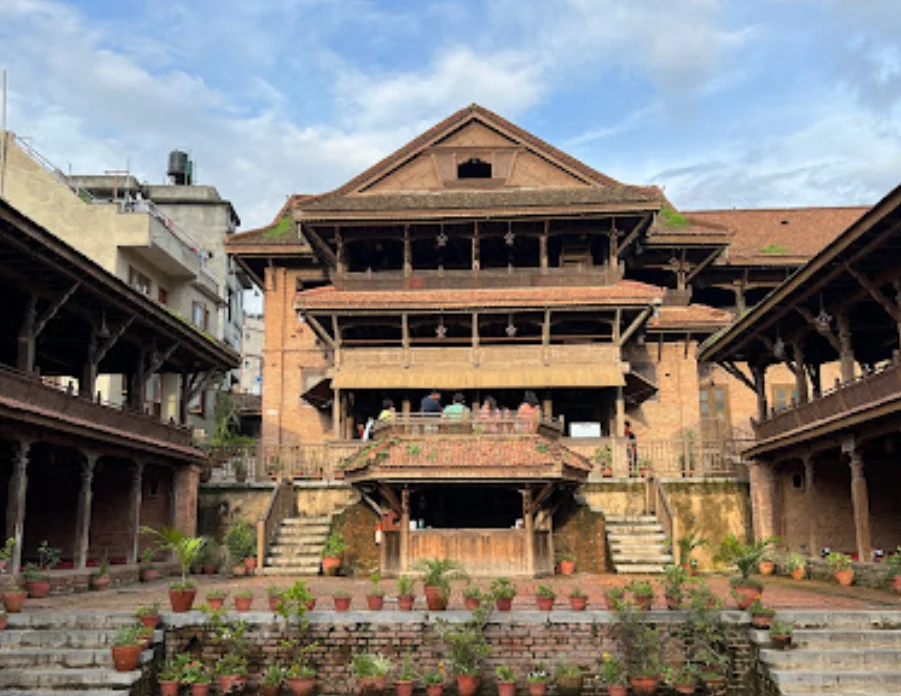
agal Tole - x. S5, Kirtipur Ring Rd
Sasah De’Newa Restro is an authentic Newari cuisine restaurant nestled in the historic town of Kirtipur. The restaurant stands out for its traditional architectural design that beautifully preserves the essence of Newari heritage. Set in a cottage palace-style building, it offers both indoor and outdoor seating arrangements that provide a culturally immersive dining experience. The establishment is particularly known for its traditional Newari khaja sets and local delicacies, complemented by cultural elements like live music performances during evening hours. The restaurant’s ambiance is enhanced by staff dressed in traditional Newari attire and live cooking demonstrations that add an interactive element to the dining experience. Its strategic location offers scenic views, making it a popular destination for both local and international guests seeking an authentic taste of Newari culture and cuisine.
15907942
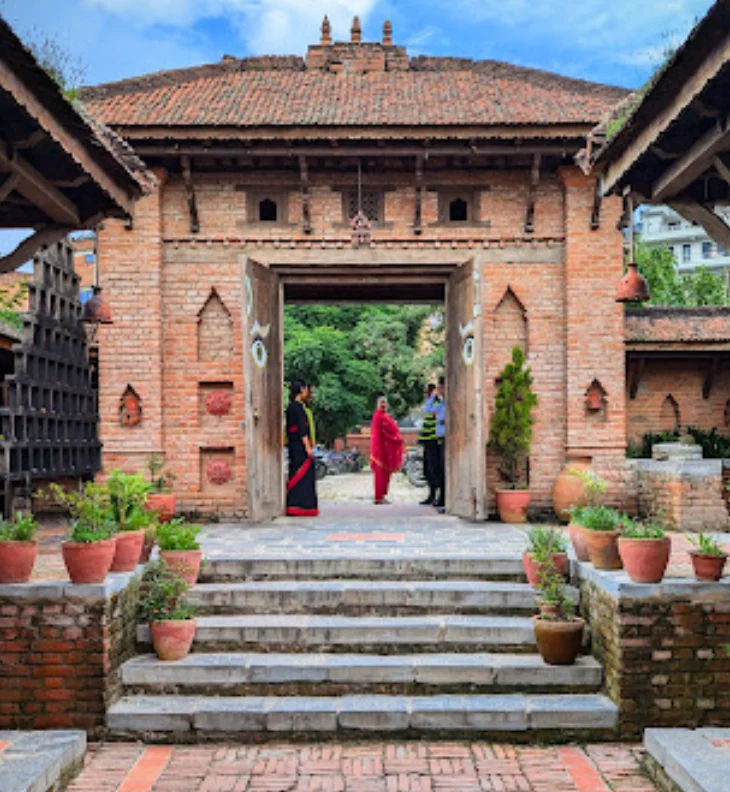
Kirtipur 44600
SASA Twa is a distinctive traditional restaurant located in Kirtipur that celebrates Newari culture and cuisine. The establishment features an impressive architectural design that showcases traditional Newari heritage, making it feel like both a cultural museum and dining destination. The restaurant offers a spacious layout with both indoor and outdoor seating arrangements, complemented by live music performances that enhance the dining experience. The venue is particularly noted for its atmospheric evening ambiance when it comes alive with colorful lighting while maintaining its authentic cultural character. The restaurant has become a popular destination for both locals and tourists seeking an immersive cultural dining experience.
9801056357
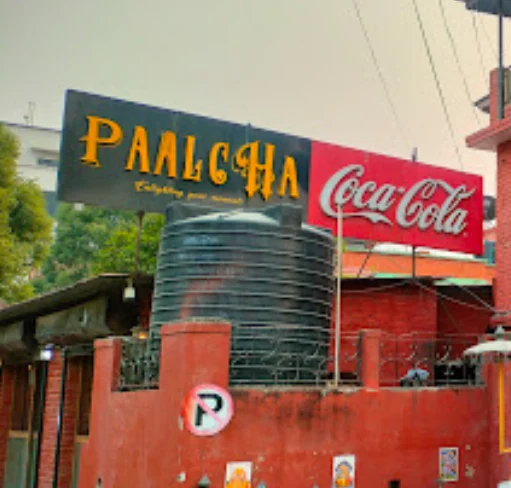
Uttar Kuna Shanti Bagaicha Rd, Lalitpur
Paalcha Newari Kitchen stands as a premier destination for authentic Newari cuisine in Lalitpur. This traditional restaurant seamlessly blends classic Nepalese flavors with modern dining amenities. The establishment has earned its reputation as both a restaurant and cultural hub, featuring a unique combination of dining spaces including a bar and lounge area. The venue is particularly notable for its dedication to preserving traditional Newari culinary arts while offering contemporary amenities like live music entertainment. With its strategic location in Jawalakhel, it serves as both a local favorite and a tourist destination, offering an immersive experience in Nepalese dining culture.
15911291
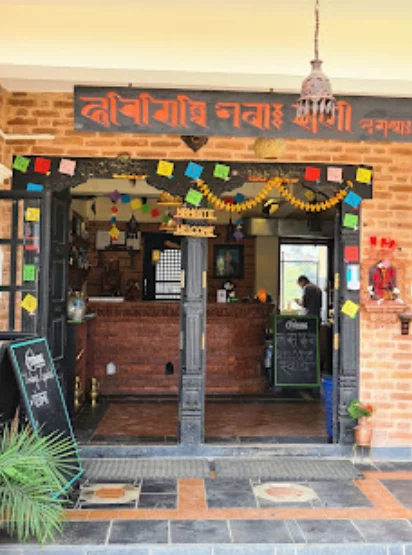
Lalitpur
Harisiddhi Newa Suli stands as a premier destination for authentic Newari cuisine in Lalitpur. This traditional restaurant has established itself as a cultural culinary landmark, offering an immersive dining experience that celebrates the rich heritage of Newari gastronomy. The restaurant’s architecture and ambiance reflect traditional Newari design elements, creating an authentic atmosphere that complements its culinary offerings. With its spacious dining areas and traditional seating arrangements, it caters to both intimate dinners and larger group gatherings. The establishment takes pride in preserving traditional Newari cooking methods and recipes, ensuring that each dish maintains its authentic taste and presentation. The restaurant’s location in Harisiddhi adds to its charm, making it easily accessible while maintaining its connection to the local community and culture.
9779841330533
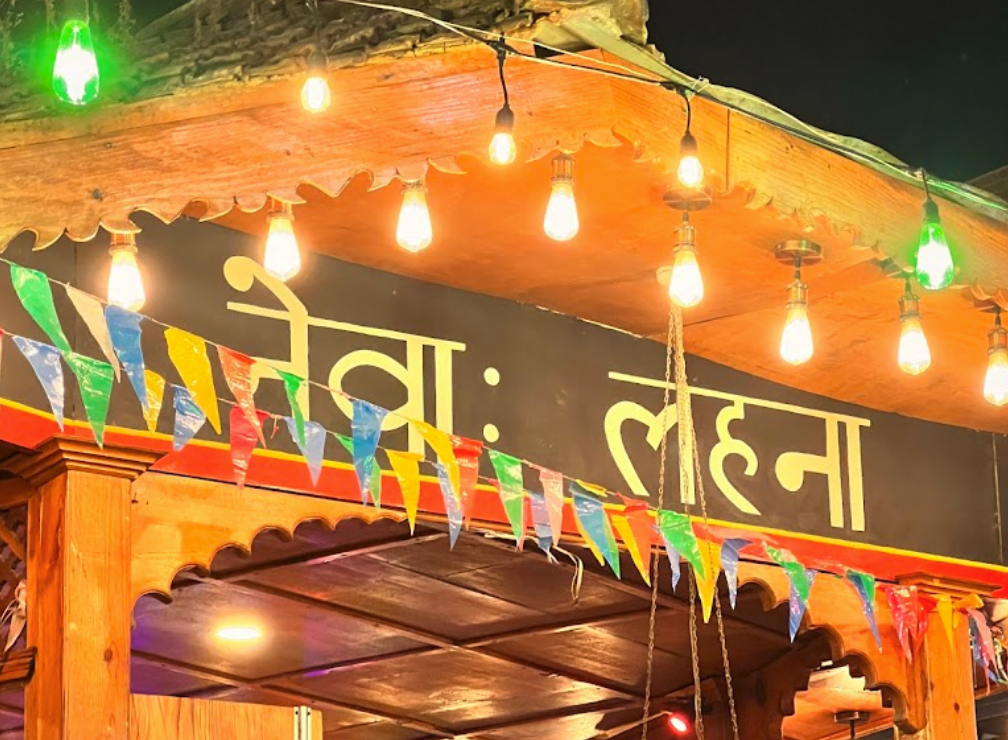
M7HF+JRJ, Kirtipur 44618, Nepal
Newa: Lahana is a traditional Newari restaurant located in Kirtipur, offering an authentic taste of local cuisine. With nearly 3,000 customer reviews, it has established itself as a prominent destination for traditional Newari delicacies like Yomari, Choila, and Chataamari. The restaurant is particularly known for its traditional beverages including Chyang (rice wine) and extensive Newari khaja sets. Its location in Kirtipur, combined with outdoor seating and a cozy atmosphere, makes it a popular choice for both traditional food enthusiasts and casual diners seeking authentic local flavors.
Newari food stands as the crown jewel of Nepalese cuisine, representing one of the world's most sophisticated and elaborate culinary traditions. With over 500 distinct dishes, this extraordinary cuisine has evolved over centuries among the Newar people of the Kathmandu Valley, creating a gastronomic legacy that transcends mere sustenance to become a profound cultural expression of community, celebration, and identity.
What is Newari Food?
Newari cuisine, also known as Newa cuisine, is the distinctive culinary tradition of the Newar people, the indigenous community of Nepal Mandala (the Kathmandu Valley). This remarkable food culture represents one of the oldest and most developed cuisines in South Asia, distinguished by its incredible variety, elaborate preparation methods, and deep symbolic significance in religious and cultural practices.
The foundation of Newari cuisine rests on its extraordinary diversity and ceremonial importance. Unlike other regional cuisines that focus primarily on daily sustenance, Newari food encompasses everything from simple daily meals to elaborate feast preparations that can include dozens of different dishes. The cuisine is characterized by its sophisticated use of fermentation techniques, complex spice blends, and innovative cooking methods that have been refined over generations.
Central to Newari cuisine is the concept of "bhoj" or feast, where food becomes a medium for community bonding, religious expression, and cultural continuity. Every dish carries meaning, every ingredient has significance, and every meal tells a story of the rich heritage of the Kathmandu Valley.
Cultural Heritage and Historical Significance
The Newar people have inhabited the fertile Kathmandu Valley for over two millennia, developing their culinary expertise through their roles as skilled traders, artisans, and agriculturalists. Their strategic position along ancient trade routes connecting India and Tibet exposed them to diverse culinary influences, which they masterfully integrated into their own food traditions.
The exceptionally fertile alluvial soil of the Kathmandu Valley provided the Newars with access to abundant and diverse agricultural produce, allowing them to develop a cuisine far more elaborate than typical subsistence cooking. This agricultural abundance, combined with the community's prosperity from trade and craftsmanship, enabled the evolution of a sophisticated food culture that celebrates both daily life and special occasions.
Newari cuisine embodies a beautiful synthesis of Hindu and Buddhist influences, reflecting the community's unique religious heritage. The food practices seamlessly blend Tantric Hindu traditions with Buddhist philosophies, creating dishes that serve both nutritional and spiritual purposes. This religious integration is evident in the numerous festival foods, ritual offerings, and ceremonial meals that mark the Newari calendar.
Why Newari Food is Famous Worldwide
Unparalleled Culinary Complexity: With over 500 documented dishes, Newari cuisine offers a level of variety and sophistication that rivals any major world cuisine. This incredible diversity spans from simple snacks to elaborate multi-course meals, ensuring that there's something to captivate every palate and dietary preference.
Cultural Authenticity and Storytelling: Each Newari dish carries profound cultural significance, making every meal a journey through centuries of tradition, belief, and community wisdom. International food enthusiasts are drawn to this authentic cultural experience that offers both delicious flavors and meaningful cultural connection.
Innovative Culinary Techniques: Newari cuisine showcases advanced culinary techniques including sophisticated fermentation processes, unique preservation methods, and innovative cooking styles that have been perfected over generations. These techniques create flavor profiles and textures that are impossible to replicate through modern shortcuts.
Festival and Celebration Culture: The cuisine's integral connection to Nepal's vibrant festival culture has made it a symbol of celebration and community joy worldwide. As Nepalese communities have established themselves globally, they've introduced these festive food traditions to international audiences, creating widespread appreciation.
Sustainable and Seasonal Eating: Long before "farm-to-table" became a global trend, Newari cuisine was built on principles of seasonal eating, local sourcing, and minimal waste. This alignment with modern sustainability values has attracted environmentally conscious food lovers worldwide.
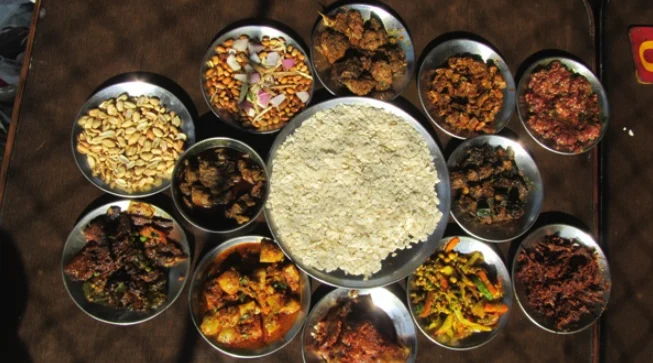
The Taste Experience
Experiencing Newari food is like embarking on a symphony of flavors, textures, and aromas. The cuisine masterfully balances the six taste profiles recognized in traditional cooking - sweet, sour, salty, bitter, pungent, and astringent - creating meals that are both satisfying and stimulating to the palate.
The famous Samay Baji, often considered the quintessential Newari meal, exemplifies this complexity. This ceremonial platter combines beaten rice (chiura) with an array of accompaniments including spiced buffalo meat (choila), black soybeans (bhatmas), lentil pancakes (bara), pickled vegetables, and traditional alcohol (aila). Each component contributes distinct flavors and textures that create a harmonious and complete eating experience.
Signature dishes like Chatamari (often called "Newari pizza") showcase the cuisine's innovative spirit - thin rice flour crepes topped with eggs, minced meat, and vegetables that create a perfect balance of crispy texture and rich flavors. The beloved Yomari, steamed rice flour dumplings filled with sweet molasses and sesame seeds, demonstrates the cuisine's mastery of both savory and sweet preparations.
The fermented elements of Newari cuisine, including gundruk (fermented leafy greens) and various pickled vegetables, add tangy, umami-rich dimensions that aid digestion while providing probiotic benefits. These fermented foods showcase the cuisine's ancient understanding of nutrition and food preservation.
Health Benefits and Nutritional Excellence
Newari cuisine offers exceptional health benefits through its emphasis on balanced nutrition and functional foods. The traditional meal structure ensures optimal macronutrient distribution, combining complex carbohydrates from rice and grains, high-quality proteins from lentils and meat, and healthy fats from traditional cooking oils.
The cuisine's extensive use of fermented foods provides excellent probiotic benefits, supporting digestive health and immune function. Dishes like gundruk, fermented black soybeans, and traditional pickles introduce beneficial bacteria that promote gut health and enhance nutrient absorption.
The abundant use of anti-inflammatory spices and herbs including turmeric, ginger, garlic, and fenugreek provides powerful antioxidant benefits. These ingredients not only enhance flavor but also support overall health by reducing inflammation and boosting immune function.
Traditional Newari meals are naturally high in dietary fiber from whole grains, legumes, and vegetables, supporting digestive health and helping maintain stable blood sugar levels. The cuisine's emphasis on seasonal vegetables ensures a diverse intake of vitamins, minerals, and phytonutrients throughout the year.
Culinary Diversity and Specialties
The breadth of Newari cuisine encompasses every category of food preparation imaginable. Breakfast items like chatamari and bara provide nutritious starts to the day, while elaborate feast preparations can include dozens of dishes ranging from simple vegetable curries to complex meat preparations.
The cuisine features unique preservation techniques that create distinctive flavors - sukuti (dried meat), various pickled vegetables, and fermented preparations that can be stored for extended periods while developing complex flavors. These preservation methods reflect the practical wisdom developed over centuries of mountain living.
Seasonal specialties mark different times of the year - yomari during winter festivals, kwati (mixed bean soup) during monsoon season, and various sweets and savories that correspond to religious and agricultural calendars. This seasonal approach ensures variety throughout the year while supporting local agriculture.
The cuisine also offers remarkable versatility for different dietary preferences. While traditionally omnivorous, many Newari dishes can be adapted for vegetarian or vegan diets without losing their essential character, making this ancient cuisine accessible to modern dietary requirements.
Why Everyone Should Try Newari Food
Cultural Immersion: Eating Newari food provides an authentic window into one of Nepal's most sophisticated cultures. Each meal offers insights into centuries of tradition, religious practice, and community values that have shaped the Kathmandu Valley's unique identity.
Culinary Adventure: The sheer variety and uniqueness of Newari dishes offer endless opportunities for culinary exploration. From familiar comfort foods to exotic specialties, the cuisine provides adventures for every level of food enthusiast.
Nutritional Excellence: The traditional wisdom embedded in Newari cuisine creates naturally balanced, nutritious meals that support optimal health. The combination of fermented foods, whole grains, legumes, and seasonal vegetables provides comprehensive nutrition.
Social and Festive Experience: Newari food culture emphasizes community, celebration, and sharing. Experiencing this cuisine connects diners to traditions of hospitality, generosity, and communal joy that enrich the social aspect of eating.
Sustainable Food Culture: The cuisine's emphasis on local ingredients, seasonal eating, and minimal waste aligns perfectly with contemporary concerns about sustainable food systems and environmental responsibility.
Artistic and Aesthetic Appeal: Beyond taste, Newari food culture includes beautiful presentation traditions, ceremonial serving methods, and artistic food arrangements that make every meal a visual feast as well as a culinary one.
Newari cuisine represents far more than food - it's a living museum of culinary wisdom, cultural values, and community identity. In a world where authentic food traditions are increasingly rare, Newari cuisine stands as a testament to the power of food to preserve culture, create community, and nourish both body and soul. Whether seeking adventure for your palate, nutrition for your health, or connection to rich cultural traditions, Newari food offers an unparalleled experience that embodies the very best of Nepal's culinary heritage. Every dish tells a story, every meal creates memories, and every bite connects you to centuries of culinary mastery that continues to evolve while honoring its remarkable past.

